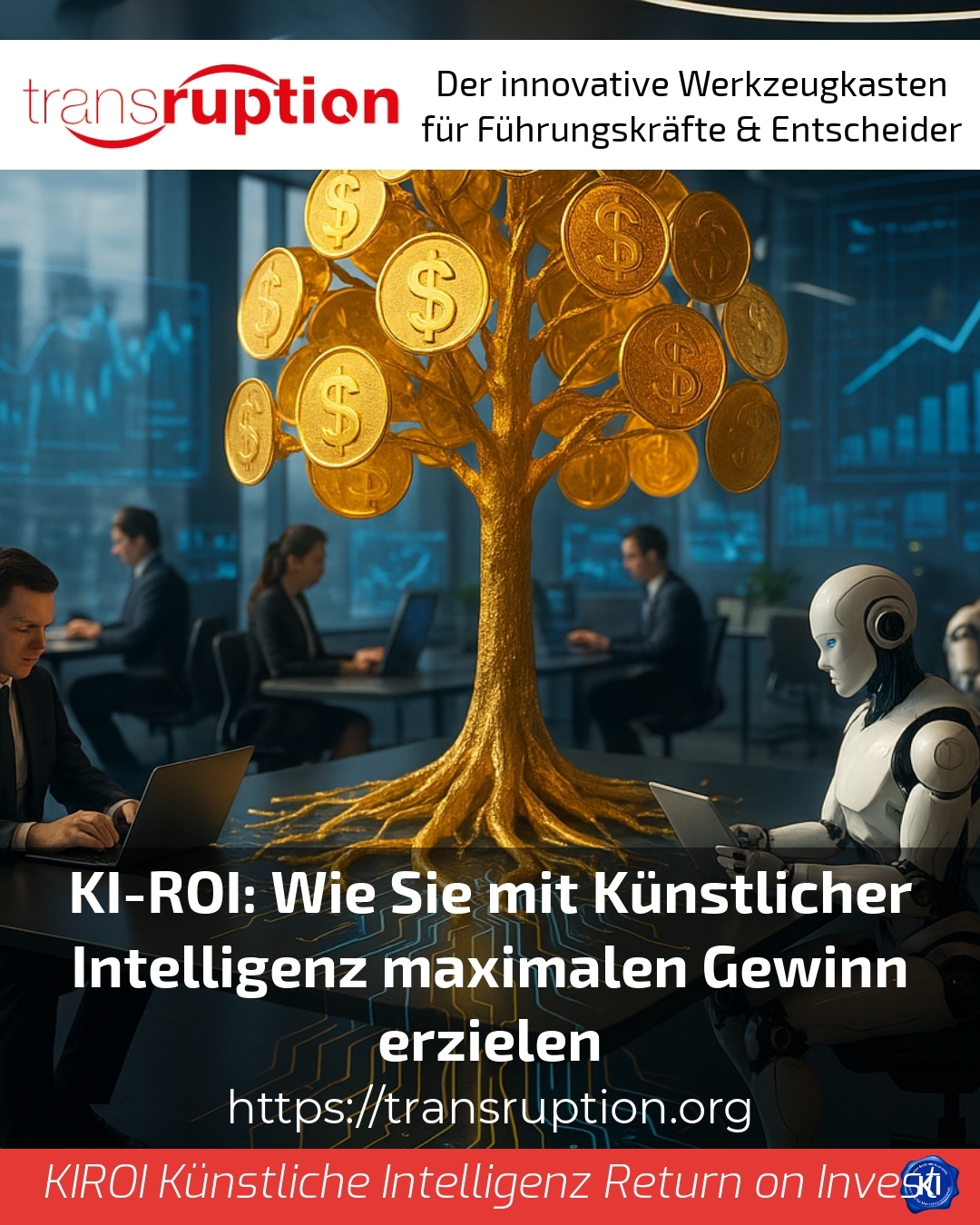The holistic view of the AI ROI
AI ROI is more than a simple cost-benefit calculation. It measures both financial benefits and qualitative improvements through AI solutions. Companies that specifically pursue AI ROI recognise potential for increasing efficiency, increasing turnover and reducing errors. The question of how investments in artificial intelligence affect the entire value chain is particularly important. The challenge lies in combining hard key figures with soft factors, such as improved customer experiences or innovation-promoting effects.
How companies achieve sustainable success through AI ROI
Many organisations invest in AI without a clear plan on how to measure and increase AI ROI. An intelligent strategy for AI ROI plays a central role here. Only those who take a holistic view of processes and automate them can achieve significant returns. Small individual measures often only increase performance slightly, while the complete redesign of workflows brings real breakthroughs. The aim is to create end-to-end solutions in which AI independently supports decisions and data is utilised in a network across the company.
BEST PRACTICE at company XYZ (name changed due to NDA contract) The company opted for comprehensive AI-driven automation of customer service. This not only accelerated the processing of enquiries, but also achieved a holistic service quality by networking all customer data. The result was a measurable reduction in operating costs and increased customer satisfaction.
Data quality and team as a driver for AI ROI
A high AI ROI does not automatically result from the introduction of AI systems. Comprehensive, clean data is the basis for successful implementation. Only with valid and well-prepared information can AI models realise their full potential. Equally crucial is the dedicated team that not only introduces AI solutions, but also actively develops them further and adapts them to changing conditions. The process is dynamic: models must be constantly monitored and optimised in order to create lasting added value.
BEST PRACTICE at ABC (name changed due to NDA contract) The technology company established an interdisciplinary team that is continuously tapping into new data sources for its AI systems and testing models under real-life conditions. This has significantly increased productivity in production - optimising throughput times and improving quality at the same time.
Automation as a lever for AI ROI
Automation drives AI ROI by replacing repetitive, error-prone tasks and freeing up resources. The use of AI is particularly effective in areas such as financial accounting, customer service or production, where processes are clearly structured and easily definable. The automation potential ranges from simple routine tasks to more complex decisions. This not only reduces costs, but also opens up sales potential through greater speed and precision.
BEST PRACTICE at DEF (name changed due to NDA contract) AI-controlled chatbots and automated invoice processing were implemented in a medium-sized company, which enabled a significant reduction in processing times. In addition, the reduction in errors led to fewer rework and higher customer satisfaction.
Measurability and strategic management of AI ROI
The precise measurement of AI ROI helps companies to steer investments in a targeted manner. It is not enough to just look at the short-term financial gain. Rather, effects such as improved employee productivity, innovative strength or risk minimisation are also taken into account. A structured framework looks at quantitative factors such as cost savings and sales growth as well as qualitative aspects. Over time, a break-even analysis can be used to recognise when the investment is paying off.
For a long-term strategy, it is advisable to continuously evaluate and adjust the AI ROI. At the same time, patience is required, as many AI projects only realise their value with growing experience and increasing scaling.
My analysis
AI ROI is a decisive factor for companies that want to create sustainable value with artificial intelligence. Support from specialised consultants helps to identify suitable measures and thus make the best possible use of the investment. A holistic understanding is important: AI ROI encompasses both measurable effects and soft factors that secure long-term competitive advantages. Companies often report that a clear strategy, high data quality and a dedicated team are defining elements for success.
Further links from the text above:
[1] AI ROI: How to measure and maximise your return on investment
[2] AI strategy for SMEs: How to maximise your ROI
[4] How Swiss companies maximise the value of their AI investments
[5] Measuring and maximising the ROI of AI tools
For more information and if you have any questions, please contact Contact us or read more blog posts on the topic TRANSRUPTION here.















